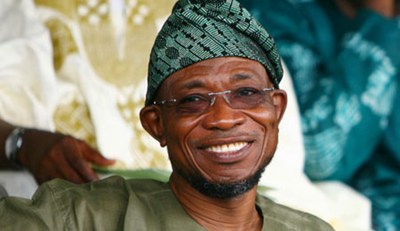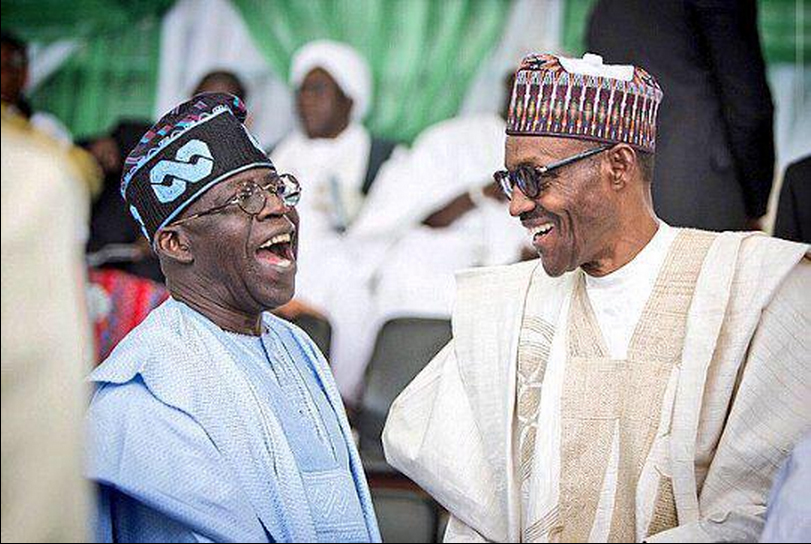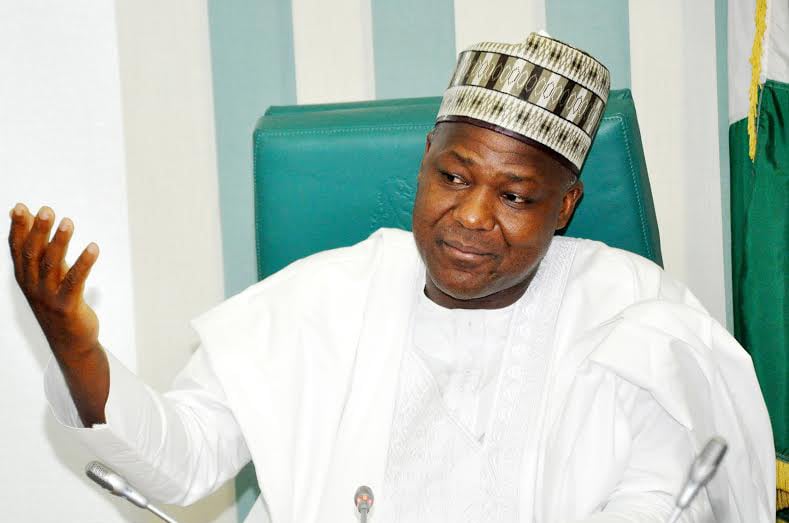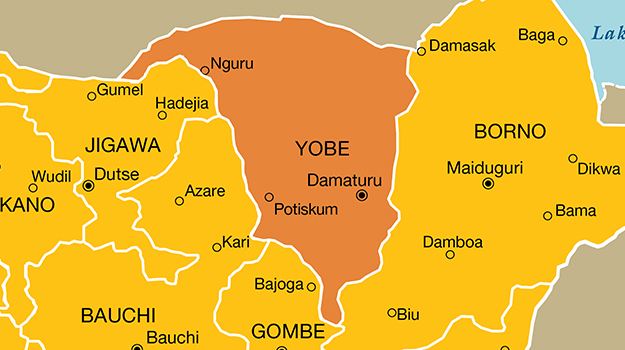You are hereby pardoned if you think the paramount purpose of politics is to win power. You are further forgiven for thinking that those all-night and all-day meetings, cross-carpeting and defections, media wars and hot air, plotting and scheming are what politics is all about. You probably came to that conclusion after observing Nigerian politicians for years. Our politicians are very skilled in political intrigues. They can go to any length to win elections. They can go on prayer and “dry fast” for one full year just to gain power. The problem, though, is that they often forget the real purpose of political power as soon as they get it. Their lives are built around elections and intrigues.
All my life, I have never witnessed the sort of intense politicking I have seen in Nigeria in the last three years. The original location was the Peoples Democratic Party (PDP), where former President Goodluck Jonathan’s quest for a second term sparked off a series of events that would eventually consume him and his party. He took control of his party’s machinery to make his re-nomination a cakewalk, and this led to the exit of five governors, dozens of senators and scores of reps who moved to the All Progressives Congress (APC). The Nigeria Governors Forum (NGF) was split into two as pro-Jonathan and anti-Jonathan forces went to war.
Many Nigerians thought it was a battle between those who wanted Nigeria to progress and those who wanted it to regress. They framed it as a battle between the “good boys” and the “bad boys”, the “democrats” and the “autocrats”. In an article I wrote on June 2, 2013, titled “Fellow Nigerians, It Is All Politics!”, I did warn that all the intrigues were not about democracy and development. I said it was not about boreholes and potholes or medicines and maternal mortality. It was not about trade and tourism. I remember suggesting that if Jonathan dropped his re-election ambition, calm would instantly return to the PDP. I insisted it was a battle of politicians not a battle of principles.
I have not seen anything to make me change my mind. The only piece of architecture I can see in the ruin is the emergence of President Muhammadu Buhari. Indeed, Buhari is a sweet-smelling deodorant for the stinking, self-centred Nigerian political class. But the trademark stench is gradually on the way back with all its pungency. In less than two weeks after the inauguration of the APC-led government, the all-night and all-day meetings, cross-carpeting and media wars, plotting and scheming are back in full force. Again, I regret to report that it is not about boreholes and potholes or medicines and maternal mortality or trade and tourism. So it goes.
Advertisement
The election of Bukola Saraki as senate president in a very Tambuwalic fashion, complete with the victory of Yakubu Dogara as speaker of the house of representatives, may just be the beginning of another poisoned politicking — this time under Buhari’s government. The APC leaders who felt injured by the rebellion of Saraki and Dogara may seek to get them removed. We may, in no time, be confronted with another unstable National Assembly where politicking would form the main legislative agenda. Nigerians could be presented with a body that spends more time resolving crises and less time on passing critical bills for national development.
May I please remind our new leaders that time is running out? Nigerians did not vote them into power because they wanted to be watching political drama. They see that in abundance on DStv. To be sure, intrigues are part and parcel of politics anywhere in the world. I have no intention to dispute that. What I seek to dispute is the notion that politics starts and ends with intrigues. Intrigues of who gets what. Intrigues of which camp is superior to the other. Intrigues of media wars. Many Nigerians are so caught up in these intrigues that they too seem to have forgotten that there are other reasons for which the APC was voted into power.
May I distract the attention of the politicians by suggesting a few things they can consider? As I write, banks are no longer lending to the economy. They are unsure of what the new economic environment will look like. The implications are not only going to be immediate but long-term. The lacuna created by lack of access to funds by businesses will further hurt an economy already reeling in high levels of unemployment and cash crunch. People are losing their jobs. The economy urgently needs first-aid treatment before we can even discuss a major surgical operation. I would have thought this should generate more passion than senate presidency. Pardon my naivety.
Advertisement
Poor me, I thought Buhari would have met with the bank chiefs by now, assuring them of his direction and encouraging them to come out of their shells. Confidence management could be another name for economic management. We are reading various reports in the media that are often contradictory on what Buhari has up his sleeves. For those who intend to invest in the economy or take major business decisions, the year 2015 has been too unfriendly and unhelpful. Everything about us has been elections, elections, elections and elections. It seems we live for elections. Everything is elections. Nothing else matters.
Another distraction I want to suggest is on the state of fuel supply. As things stand, we don’t even know where we are headed. Are we going to continue the subsidy regime? If not, are we deregulating? How long can we sustain this hand-to-mouth fuel supply with all the uncertainties and queues that come with it? Will outstanding subsidy claims be verified and cleared or are we going to be in this perpetual state of guessing and second-guessing? Whatever policy direction is chosen by Buhari will have implications. If he retains subsidy, there will be issues. If he doesn’t, there will be issues. But he needs to quickly communicate his intentions to the marketers.
As APC battles with its contradictions and ego wars, they need to pause and think of the dire consequences of failing to face the business of governance. I long for the time when our politicians (from all parties) will redistribute their energies and allocate less to political intrigues. Imagine the distance politicians have travelled in the struggle for power in the last three years. Imagine all the criss-crossing around the country. Imagine the meetings upon meetings. Imagine the resources devoted to campaigns from LGA to LGA and from state to state. If only 10% of these can be devoted to a development agenda, Nigeria would be a far better place by now!
The APC summoned several emergency meetings over the National Assembly leadership elections. Can you imagine the positive outcome if similar emergency meetings are summoned to address the power crisis? Can you imagine what could happen if all the emotions poured into the battle for political power in the general election were instead applied to addressing infant and maternal mortality? Can you imagine our politicians devoting days and nights to plotting how to tackle poverty rather than plotting to share National Assembly positions among their cronies and associates? I bet you: Singapore would be like a ghetto beside Nigeria.
Advertisement
Unfortunately, our politicians still don’t get it. They still think the purpose of power is intrigues. They carry on as if they were given a mandate to embark on pure politicking and corner all the goodies to themselves. The purpose of political power, I dare propose, should be development. The purpose is to lead the society in the direction of progress. Politics should never start and end with intrigues. We thought it was a PDP problem but we know better by now. Our problems require urgent solutions. Every minute wasted can never be recovered. Everyday should count in the life of this new administration. Time is running out, folks.
…AND FOUR OTHER THINGS
DIVERSITY DREAMS
After the furore over the inauguration of National Assembly, something struck me: the unusual ethnic and geo-political mix of the newly elected leaders. A Bukola from the north-central as senate president? A Christian from Bauchi as speaker? A PDP senator as deputy senate president in an APC government? This is quite unusual in our power matrix. It may not become a new template, but some of the questions I’ve been asking over the years are being answered. Maybe one day an Igbo Muslim will get a prominent federal appointment and a Christian will be appointed commissioner in Kano state. Dreaming.
NO. 6 OR NOTHING
Advertisement
Ahead of the election of National Assembly leaders, I was taken aback when I discovered that there was no provision for the south-south and south-east in the official pairings favoured by the APC. The general argument is that since those zones voted PDP, they have to pay the price. As an enthusiast of national integration, I will never support such triumphalism. Inclusion is key to integration in a politically explosive country multi-cultural society. Therefore, Ike Ekweremadu’s election as deputy senate president solves a potentially awkward situation. At least the south-east retains the No. 6 position — its highest since 2011. Balancing.
CHANGE AT HILTON
Advertisement
The aura at the lobby of Transcorp Hilton Hotel, Abuja, is ever awesome. The cultural ambience is often reflective of the prevailing power centre in Nigeria. In the days of President Jonathan, the lobby always brimmed with Niger Delta billionaires and militants in their bowler hats and heavy neck chains, accompanied by Nollywood girls. Pidgin English was the language of choice. Well, Kingdoms rise and kingdoms fall. President Buhari is now in charge. A friend said the lingua franca at the lobby of the “hotel of power” is now Hausa and the dominant attire is babanriga with Shagari cap. Change.
SCHOOLBOYS AGAIN
Advertisement
Going back to school could be a good idea for former political appointees. My friend, David Iyofor, who served as media aide to Rt. Hon. Rotimi Amaechi, former governor of Rivers, is on his way to Kennedy School of Government, Harvard University, to participate in the Emerging Leaders Program. The programme seeks to develop and expand the capacity of the next generation of leaders. Dr. Reuben Abati, who served as spokesman to former President Jonathan, is currently at Oxford University, UK, undertaking the Advanced Management and Leadership Programme. As a beneficiary of “adult education”, I’m quite happy for them. Instructive.
Advertisement






